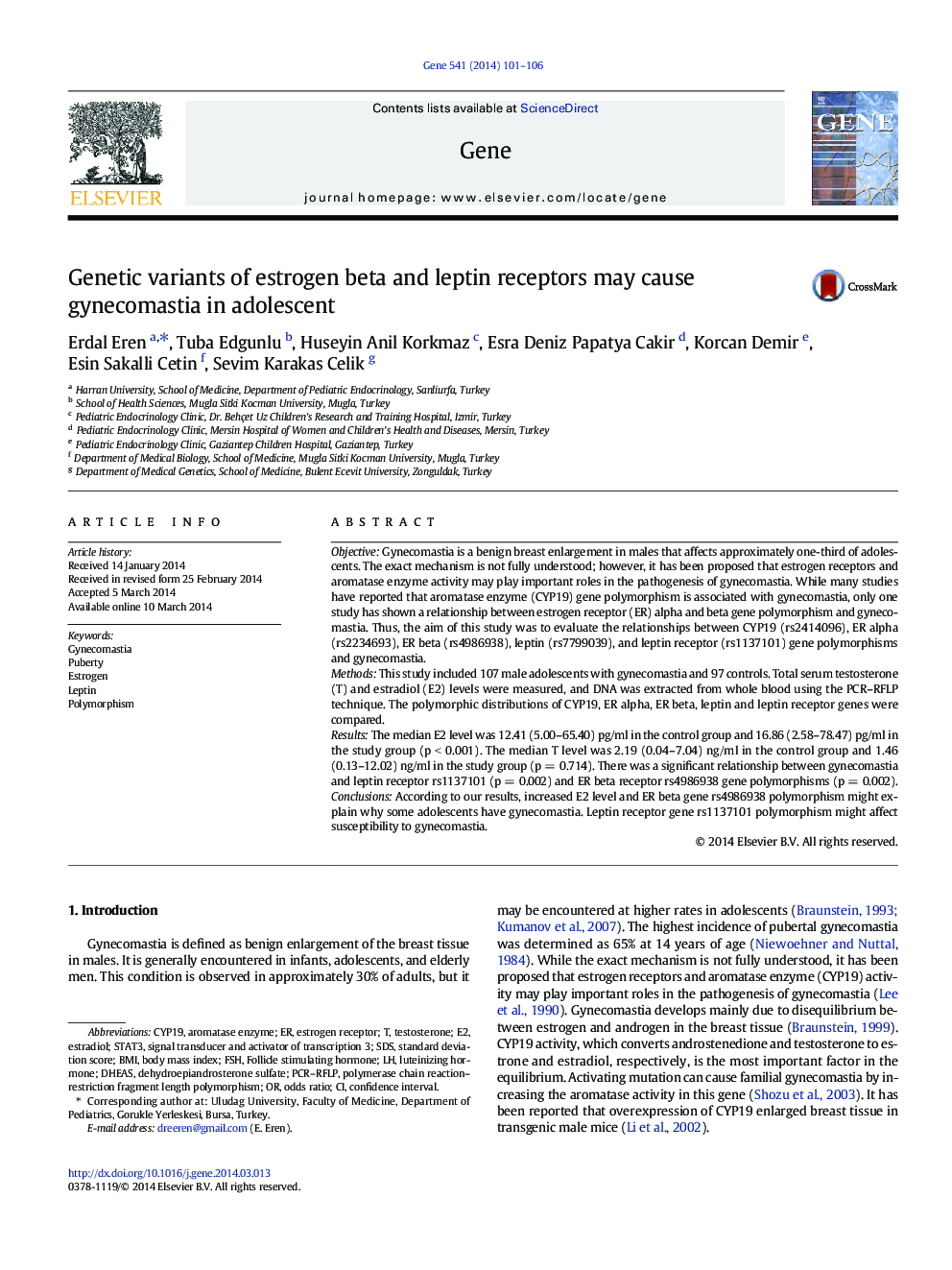| کد مقاله | کد نشریه | سال انتشار | مقاله انگلیسی | نسخه تمام متن |
|---|---|---|---|---|
| 2816472 | 1159936 | 2014 | 6 صفحه PDF | دانلود رایگان |
• Increased estradiol level is found in adolescent with gynecomastia.
• Estrogen beta gene rs4986938 polymorphism is associated with gynecomastia.
• Leptin receptor gene rs1137101 polymorphism is associated with gynecomastia.
• Body mass index and body weight SDS are markedly higher in the gynecomastia group.
ObjectiveGynecomastia is a benign breast enlargement in males that affects approximately one-third of adolescents. The exact mechanism is not fully understood; however, it has been proposed that estrogen receptors and aromatase enzyme activity may play important roles in the pathogenesis of gynecomastia. While many studies have reported that aromatase enzyme (CYP19) gene polymorphism is associated with gynecomastia, only one study has shown a relationship between estrogen receptor (ER) alpha and beta gene polymorphism and gynecomastia. Thus, the aim of this study was to evaluate the relationships between CYP19 (rs2414096), ER alpha (rs2234693), ER beta (rs4986938), leptin (rs7799039), and leptin receptor (rs1137101) gene polymorphisms and gynecomastia.MethodsThis study included 107 male adolescents with gynecomastia and 97 controls. Total serum testosterone (T) and estradiol (E2) levels were measured, and DNA was extracted from whole blood using the PCR–RFLP technique. The polymorphic distributions of CYP19, ER alpha, ER beta, leptin and leptin receptor genes were compared.ResultsThe median E2 level was 12.41 (5.00–65.40) pg/ml in the control group and 16.86 (2.58–78.47) pg/ml in the study group (p < 0.001). The median T level was 2.19 (0.04–7.04) ng/ml in the control group and 1.46 (0.13–12.02) ng/ml in the study group (p = 0.714). There was a significant relationship between gynecomastia and leptin receptor rs1137101 (p = 0.002) and ER beta receptor rs4986938 gene polymorphisms (p = 0.002).ConclusionsAccording to our results, increased E2 level and ER beta gene rs4986938 polymorphism might explain why some adolescents have gynecomastia. Leptin receptor gene rs1137101 polymorphism might affect susceptibility to gynecomastia.
Journal: Gene - Volume 541, Issue 2, 15 May 2014, Pages 101–106
